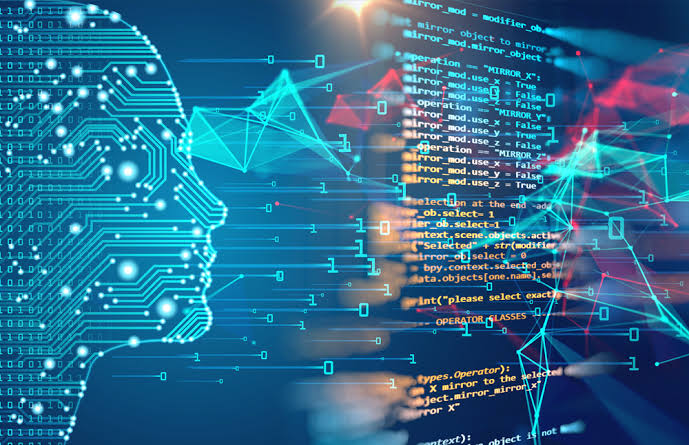
Machine Learning for Adaptive Testing and Feedback
Machine learning is transforming adaptive testing by personalizing assessments and feedback based on learner data. Unlike traditional fixed tests, adaptive testing dynamically adjusts question difficulty to match individual performance, improving accuracy and engagement. Machine learning models analyze response patterns to identify learning gaps and deliver timely, customized feedback that helps learners improve efficiently.
✨ Raghav Jain

Introduction
In recent years, technology has revolutionized education and training systems worldwide. One of the most significant advancements in this area is the integration of machine learning (ML) into adaptive testing and feedback mechanisms. Adaptive testing tailors the difficulty and types of questions based on the learner’s performance, while feedback provides personalized guidance to improve learning outcomes.
Machine learning algorithms enable these systems to analyze vast amounts of data from learners and continuously improve test accuracy and feedback relevance. This creates a more engaging, effective, and personalized learning experience compared to traditional one-size-fits-all methods.
This article explores how machine learning powers adaptive testing and feedback, the benefits it offers, key techniques used, challenges faced, and the future potential of this innovative approach in education and training. In the rapidly evolving landscape of education and professional development, the conventional "one-size-fits-all" approach to assessment and learning feedback is increasingly recognized as inefficient, often failing to cater to the diverse learning styles, pace, and knowledge gaps of individual learners. This critical limitation has spurred the profound integration of machine learning (ML) into the realm of adaptive testing and intelligent feedback systems, heralding a transformative shift towards personalized learning experiences that are both highly effective and profoundly engaging. At its core, machine learning in this context enables assessment platforms to transcend static examinations, instead evolving into dynamic, intelligent tools that continuously adjust their difficulty, content, and question types in real-time based on a learner's ongoing performance and inferred knowledge state. This sophisticated adaptation is achieved through complex algorithms that analyze vast amounts of data—including correct and incorrect answers, response times, patterns of errors, and even meta-cognitive indicators—to construct an accurate, probabilistic model of what a learner knows, what they struggle with, and where their potential for growth lies. The fundamental premise is to optimize the learning process by presenting challenges that are neither overwhelmingly difficult nor trivially easy, thereby maintaining the learner within their "zone of proximal development" and maximizing engagement and learning efficacy. This continuous, data-driven personalization is not merely about assessing existing knowledge but proactively guiding the learning journey, identifying precise areas for intervention, and fostering a deeper, more resilient understanding of the subject matter.
The technical architecture underpinning machine learning for adaptive testing typically involves sophisticated algorithms drawn from various ML paradigms, primarily supervised and unsupervised learning, often augmented by reinforcement learning techniques. Item Response Theory (IRT) models are foundational, providing a probabilistic framework to estimate a learner's ability level and the difficulty and discriminative power of individual test items. Instead of simply counting correct answers, IRT models analyze response patterns to infer a more nuanced understanding of proficiency. For example, getting a difficult question right provides more information about a learner's high ability than getting an easy question right. Bayesian inference is frequently employed to update a learner's estimated ability level in real-time as they answer each question, creating a dynamic, probabilistic belief about their mastery. Collaborative filtering techniques, similar to those used in recommendation systems, can identify patterns in how different learners answer questions, allowing the system to recommend optimal learning paths or content based on the performance of similar learners. Deep learning models, particularly recurrent neural networks (RNNs) and transformer networks, are increasingly used to process sequences of learner interactions, predict future performance, and even generate novel test items that are optimally challenging. Reinforcement learning, with its emphasis on trial-and-error and reward systems, is emerging as a powerful approach for optimizing the sequencing of learning content and feedback delivery, training agents to learn the most effective pedagogical strategies for a given learner over time. These diverse ML techniques are orchestrated to create a highly responsive and predictive assessment engine that continuously calibrates the learning experience to the individual.
Beyond merely adapting the assessment itself, machine learning plays an equally crucial role in generating highly personalized and actionable feedback – a critical component often neglected in traditional learning environments. Instead of generic "correct" or "incorrect" notifications, ML-powered feedback systems can offer granular insights into why an answer was wrong, identify common misconceptions, point to specific prerequisite knowledge gaps, and suggest targeted remedial resources. This might include links to relevant readings, instructional videos, practice problems, or even personalized tutoring suggestions. For instance, if a learner consistently makes errors related to a particular concept in algebra, the ML system can identify this pattern and provide immediate, hyper-focused feedback that explains the specific algebraic rule they are misapplying, rather than just marking the entire problem incorrect. Natural Language Processing (NLP) techniques are increasingly integrated to understand free-text answers, analyze the semantic content of learner responses, and even generate human-like textual explanations for complex concepts. This enables the system to move beyond multiple-choice questions and engage with more open-ended assessments, providing richer, more qualitative feedback. Furthermore, ML models can analyze not just the correctness of an answer but also the process a learner takes to arrive at it, including their response time, revisions, and even mouse movements or eye-tracking data (in controlled environments), to infer their cognitive strategies and identify areas where they might be guessing or struggling. This deep level of diagnostic feedback empowers learners to understand not just what they got wrong, but why, and more importantly, how to improve, transforming errors into powerful learning opportunities.
The benefits of machine learning for adaptive testing and feedback are manifold and far-reaching, impacting learners, educators, and institutions alike. For learners, it fosters a more engaging and less anxiety-inducing assessment experience by eliminating redundant questions and focusing on areas where improvement is needed. This personalized pace and challenge level increase motivation, reduce frustration, and promote deeper understanding rather than rote memorization. Learners receive immediate, targeted, and highly relevant feedback, allowing them to self-correct and reinforce learning in real-time. For educators, ML-powered platforms provide invaluable insights into individual student progress, common class-wide misconceptions, and the effectiveness of teaching materials, allowing them to refine their pedagogical strategies and allocate their valuable time more efficiently to students who need the most support. This data-driven approach shifts the educator's role from a primary content deliverer to a facilitator and mentor, empowering them with actionable intelligence. Institutions benefit from improved learning outcomes, higher student retention rates, and the ability to scale personalized learning experiences to a larger student body without proportionally increasing faculty workload. Moreover, adaptive testing can offer more accurate and reliable assessments of true ability by reducing the impact of lucky guesses or minor slips, providing a more robust measure of mastery than static tests. The ethical implications, such as data privacy, algorithmic bias, and the potential for over-reliance on AI, remain crucial areas of research and responsible development, ensuring that these powerful tools are used to augment, rather than replace, human judgment and interaction in the learning process.
In conclusion, the integration of machine learning into adaptive testing and feedback systems represents a profound leap forward in the quest for truly personalized education. By leveraging sophisticated algorithms to dynamically adjust assessment difficulty and provide highly specific, actionable insights, ML empowers learning platforms to cater to the unique needs of every individual. This move away from standardized, static assessments towards intelligent, responsive learning pathways maximizes learner engagement, accelerates knowledge acquisition, and fosters a deeper, more resilient understanding of complex subjects. The synergy between advanced ML models, like IRT, Bayesian inference, and deep learning, with sophisticated feedback mechanisms, including NLP for qualitative analysis, creates an educational ecosystem where errors become diagnostic opportunities and every interaction contributes to a precise understanding of a learner's evolving knowledge state. As these technologies continue to mature and become more accessible, they hold the immense promise of revolutionizing how we learn, assess, and develop skills, ultimately unlocking the full potential of every learner and preparing them more effectively for an increasingly complex and dynamic world. The future of education is undoubtedly adaptive, intelligent, and deeply personal, shaped by the transformative power of machine learning.
Understanding Adaptive Testing and Feedback
Adaptive testing is a form of assessment where the test dynamically adjusts in real-time to the test taker’s ability level. Instead of presenting the same questions to every learner, an adaptive test selects questions based on the individual's previous responses. This results in a tailored experience that can more precisely measure knowledge, skills, and competencies.
Feedback, in this context, is the information given to learners about their performance. Personalized feedback can range from hints and explanations to recommendations for further study, helping learners understand their strengths and weaknesses.
Machine learning models analyze learner data such as response times, answer patterns, and error types to adapt both testing difficulty and the quality of feedback provided.
Why Machine Learning is Essential for Adaptive Testing and Feedback
Traditional adaptive testing systems rely on pre-defined rules or simple statistical models that have limited flexibility and personalization. Machine learning brings a new level of intelligence by:
- Automatically learning from data: ML algorithms can analyze thousands of learner interactions to detect patterns that humans might miss.
- Improving accuracy: ML models improve over time by continuously updating with new data, leading to better assessment precision.
- Providing personalized feedback: Instead of generic responses, machine learning enables detailed, tailored guidance for each learner.
- Handling complex data: ML can process various data types, including text, audio, and behavioral metrics, enhancing the feedback quality.
- Scaling effectively: Machine learning systems can handle large numbers of learners without the need for manual adjustments.
Common Machine Learning Techniques in Adaptive Testing
Several ML techniques are commonly employed in adaptive testing and feedback systems:
1. Item Response Theory (IRT) Enhanced by ML
IRT is a statistical framework used to model the probability that a learner will answer a question correctly based on their ability and question difficulty. Machine learning enhances IRT by dynamically updating these parameters using real-time data, resulting in more accurate adaptation.
2. Reinforcement Learning
Reinforcement learning algorithms learn optimal strategies by trial and error, using feedback from previous actions. In adaptive testing, this approach helps select the best next question to maximize learning and test efficiency.
3. Natural Language Processing (NLP)
NLP techniques allow systems to analyze and generate human language, making it possible to provide detailed textual feedback, grade open-ended answers, and interact conversationally with learners.
4. Clustering and Classification
Unsupervised learning techniques like clustering group learners with similar patterns, allowing the system to tailor tests and feedback to specific learner profiles. Classification algorithms can predict learner outcomes or identify misconceptions.
5. Deep Learning
Deep learning models can handle complex, non-linear data relationships and are increasingly used to analyze multimodal learner data—such as eye tracking, speech, and facial expressions—to improve feedback personalization.
Benefits of Using Machine Learning in Adaptive Testing and Feedback
1. Personalized Learning Experience
Machine learning enables truly personalized testing and feedback by continuously analyzing individual learner data. This customization helps maintain engagement, reduce frustration, and accelerate learning.
2. More Accurate Assessment
By adapting question difficulty dynamically and refining the underlying models with new data, ML-powered systems provide a more accurate measure of a learner’s true ability and knowledge gaps.
3. Immediate and Relevant Feedback
ML can generate instant feedback that is specific to the learner’s errors and learning style, helping learners understand concepts better and apply corrective actions promptly.
4. Efficient Learning Paths
Machine learning algorithms can recommend tailored learning resources and sequences, guiding learners along efficient paths toward mastery.
5. Scalability
Automated ML-based adaptive systems can support thousands of learners simultaneously without sacrificing personalization or quality.
Challenges in Implementing Machine Learning for Adaptive Testing
Despite its advantages, implementing ML in adaptive testing and feedback faces several challenges:
1. Data Quality and Privacy
High-quality, large datasets are needed for effective machine learning models, but collecting such data while respecting privacy laws and ethical standards can be difficult.
2. Algorithm Bias
If training data is biased, ML models may produce unfair or inaccurate results, disadvantaging certain learner groups.
3. Interpretability
Complex ML models, especially deep learning, often act as “black boxes,” making it hard to explain how specific decisions are made to educators and learners.
4. Integration with Existing Systems
Integrating ML adaptive testing tools with existing learning management systems (LMS) and educational infrastructure can be technically challenging.
5. Cost and Expertise
Developing and maintaining ML-powered adaptive testing requires investment in skilled personnel and technology resources, which may be prohibitive for smaller institutions.
Future Directions
Machine learning for adaptive testing and feedback is evolving rapidly. Future trends may include:
- Greater use of multimodal data: Incorporating biometric, emotional, and engagement data for deeper personalization.
- Explainable AI: Developing models that provide transparent, understandable feedback on assessment decisions.
- Collaborative learning: ML systems that adapt not only to individuals but to group dynamics and peer learning.
- Lifelong learning: Adaptive systems that track and support learners across different stages of education and career development.
- AI tutors: Intelligent agents capable of offering human-like tutoring and coaching alongside assessments.
Conclusion
Machine learning has transformed adaptive testing and feedback, making education more personalized, efficient, and effective. By harnessing data and intelligent algorithms, ML-powered systems tailor assessments to individual learner needs, provide instant, relevant feedback, and continuously improve based on real-world interactions.
While challenges such as data privacy, bias, and technical complexity remain, ongoing research and innovation promise to overcome these hurdles. The future of education will likely be shaped by adaptive systems driven by machine learning, enabling learners worldwide to reach their full potential through tailored, responsive learning experiences.
Educational institutions, trainers, and technology developers must collaborate to responsibly develop and implement these powerful tools, ensuring accessibility and fairness while enhancing learning outcomes.
Q&A Section
Q1: What is machine learning and how does it relate to adaptive testing?
Ans: Machine learning is a branch of artificial intelligence where computers learn from data to make decisions. In adaptive testing, machine learning algorithms personalize test questions based on the learner’s performance in real time.
Q2: How does adaptive testing differ from traditional testing methods?
Ans: Unlike traditional fixed tests, adaptive testing adjusts the difficulty and type of questions dynamically according to the test-taker’s responses, providing a more personalized and accurate assessment.
Q3: What role does feedback play in adaptive testing powered by machine learning?
Ans: Machine learning provides instant, tailored feedback by analyzing learner responses, helping students understand their mistakes and improve efficiently.
Q4: How does machine learning improve the accuracy of assessments in adaptive testing?
Ans: Machine learning analyzes patterns in student responses and learning behavior, allowing the system to select the most appropriate questions that reflect the learner’s true ability.
Q5: What types of data are used by machine learning models in adaptive testing?
Ans: Models use data such as past test performance, response time, answer accuracy, and learning progress to adapt the test content and provide feedback.
Q6: How does adaptive testing enhance learner engagement?
Ans: By tailoring questions to the learner’s level, adaptive testing keeps challenges appropriate and motivating, reducing frustration and boredom.
Q7: Can machine learning help educators in identifying learning gaps?
Ans: Yes, adaptive testing systems use data analysis to highlight specific areas where learners struggle, enabling educators to target those gaps with focused interventions.
Q8: What are the benefits of using machine learning in feedback delivery?
Ans: Machine learning delivers personalized, timely, and actionable feedback, which helps learners correct mistakes promptly and supports continuous improvement.
Q9: How does machine learning handle diverse learning styles in adaptive testing?
Ans: By analyzing varied response patterns, machine learning customizes tests and feedback to match different learning styles and paces, improving overall learning outcomes.
Q10: What challenges exist in implementing machine learning for adaptive testing and feedback?
Ans: Challenges include ensuring data privacy, maintaining model accuracy, preventing bias in algorithms, and integrating systems seamlessly into existing educational frameworks.
Similar Articles
Find more relatable content in similar Articles

Digital DNA: The Ethics of Gen..
Digital DNA—the digitization a.. Read More

Wearable Health Sensors: The D..
Wearable health sensors are re.. Read More

Data Centers and the Planet: M..
As cloud computing becomes the.. Read More

Protecting Kids in the Digital..
In an increasingly connected w.. Read More
Explore Other Categories
Explore many different categories of articles ranging from Gadgets to Security
Smart Devices, Gear & Innovations
Discover in-depth reviews, hands-on experiences, and expert insights on the newest gadgets—from smartphones to smartwatches, headphones, wearables, and everything in between. Stay ahead with the latest in tech gear
Apps That Power Your World
Explore essential mobile and desktop applications across all platforms. From productivity boosters to creative tools, we cover updates, recommendations, and how-tos to make your digital life easier and more efficient.
Tomorrow's Technology, Today's Insights
Dive into the world of emerging technologies, AI breakthroughs, space tech, robotics, and innovations shaping the future. Stay informed on what's next in the evolution of science and technology.
Protecting You in a Digital Age
Learn how to secure your data, protect your privacy, and understand the latest in online threats. We break down complex cybersecurity topics into practical advice for everyday users and professionals alike.
© 2025 Copyrights by rTechnology. All Rights Reserved.